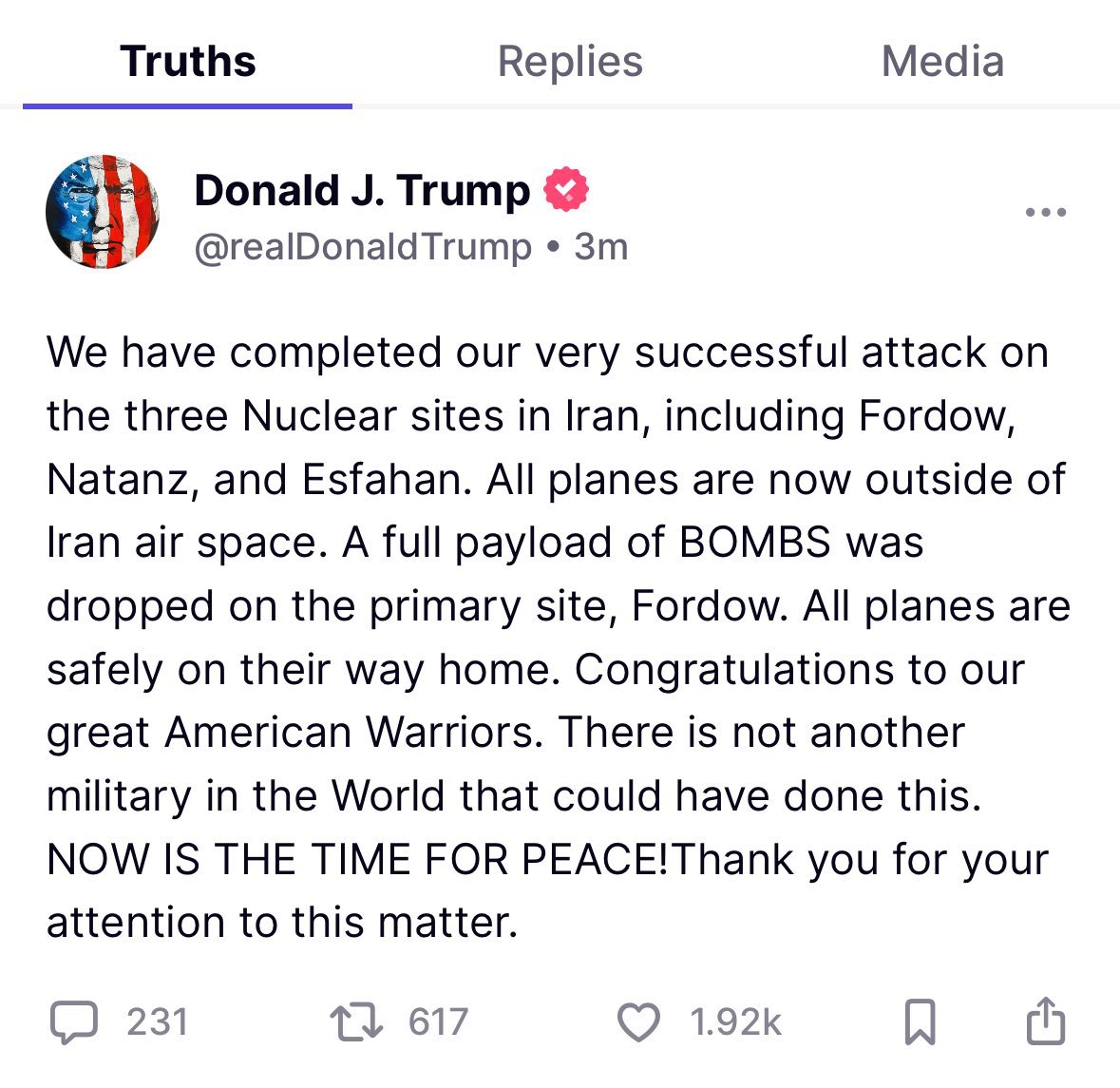Cross-Party Coalition Emerges Amid U.S. Foreign Policy Realignment
Fetterman’s Support for Iran Strike Highlights Shifting Congressional Dynamics on National Security
June 22, 2025
The intersection of national security and partisan politics has produced an unexpected alliance as Pennsylvania Senator John Fetterman broke with Democratic Party leadership to publicly endorse President Trump’s military action against Iranian nuclear facilities. This development underscores a broader realignment in American foreign policy discourse, where traditional party lines are increasingly challenged by pragmatic security concerns.

Unprecedented Bipartisan Moment
Senator Fetterman’s statement of support represents a significant departure from conventional partisan responses to military action. His declaration on social media platform X was unequivocal: “As I’ve long maintained, this was the correct move by @POTUS. Iran is the world’s leading sponsor of terrorism and cannot have nuclear capabilities. I’m grateful for and salute the finest military in the world.”
The Pennsylvania Democrat’s endorsement came as many of his colleagues either criticized the strikes or called for congressional oversight of the operation. This rare instance of cross-party support highlights the complex nature of contemporary American foreign policy, where strategic interests sometimes transcend political affiliations.
Operation Midnight Hammer: A Technical Assessment
The military operation, designated “Midnight Hammer,” represents one of the most sophisticated strikes ever conducted against Iranian infrastructure. The coordinated assault targeted three primary nuclear facilities: Fordow, Natanz, and Esfahan enrichment sites. The operation employed advanced military assets including stealth bombers from Whiteman Air Force Base, precision-guided GBU-57 bunker-buster munitions, naval-launched Tomahawk missiles, and comprehensive cyber warfare capabilities designed to neutralize Iranian air defense systems.
Pentagon sources confirm that the operation achieved its objectives without American casualties or aircraft losses, a success attributed to tactical surprise and advanced electronic warfare capabilities. The two-week delay between the initial threat and the actual strike has been characterized by military analysts as a strategic deception that enhanced operational security.
Congressional Response and Constitutional Questions
The legislative response has been notably divided across party lines, with significant implications for constitutional governance. The Democratic caucus has demonstrated internal fractures, particularly between progressive members advocating for diplomatic solutions and pro-Israel Democrats who view Iranian nuclear capabilities as an existential threat to regional stability.
Representative Ro Khanna of California and Representative Thomas Massie of Kentucky have introduced bipartisan legislation to restrict military engagement with Iran without explicit congressional authorization. Similarly, Senator Tim Kaine of Virginia is pursuing Senate action to clarify the constitutional requirements for military action abroad.
These legislative initiatives invoke the War Powers Resolution of 1973, which requires presidential notification to Congress within 48 hours of military deployment and mandates withdrawal within 60 days without congressional authorization. The debate over compliance with these requirements could establish precedents for future executive military authority.
Intelligence Briefing and Security Assessments
The national security implications extend beyond the immediate military success. CIA Director John Ratcliffe is scheduled to brief the full Senate on intelligence assessments regarding Iran’s remaining nuclear capabilities, anticipated retaliation strategies, and potential domestic security threats.
Intelligence officials have identified several areas of concern including sophisticated cyberattack capabilities, proxy militia responses through regional partners, and the possibility of activated sleeper cells within the United States and Europe. These assessments reflect the multifaceted nature of Iranian retaliatory capabilities and the need for comprehensive defensive preparations.
The briefing will address specific threats to American infrastructure, particularly from Iranian-aligned groups and potential lone-actor scenarios. Historical precedents for retaliatory terrorism following military strikes against state sponsors of terrorism inform current security protocols.
Strategic Military Analysis
Retired Brigadier General Mark Kimmitt, former Assistant Secretary of State for Political-Military Affairs, provided insight into the strategic thinking behind the operation’s timing. In a CNN interview, General Kimmitt characterized the two-week delay as deliberate misdirection, stating: “The use of deception and trickery in this case was successful—and it saved American lives.”
This assessment suggests that the Pentagon employed sophisticated operational security measures designed to maximize tactical surprise while minimizing risk to American personnel. The successful execution of such a complex operation without casualties represents a significant achievement in military planning and execution.
Escalation Risks and Regional Stability
Military analysts emphasize that while the immediate operation succeeded, the potential for escalation remains significant. Iran’s retaliatory capabilities include missile strikes against American military installations in Iraq, Syria, and the Persian Gulf region, increased proxy warfare through Hezbollah and Hamas, sophisticated cyberattacks targeting American financial and infrastructure networks, and enhanced insurgent activity against American forces in the region.
General Kimmitt’s assessment acknowledges these risks: “The Iranians are down, but they’re not out… Iranian-backed militias in Iraq alone can put up quite a fight and put a significant amount of American interests, American troops, American infrastructure at risk.”
The administration faces the challenge of maintaining deterrence while avoiding full-scale regional conflict. This balance requires careful calibration of military responses and diplomatic initiatives to prevent uncontrolled escalation.
Political Implications for Democratic Leadership
Senator Fetterman’s position represents a calculated political risk within the Democratic Party, where progressive voices increasingly advocate for diplomatic solutions over military intervention. However, his stance may resonate with moderate Democrats concerned about Iranian regional influence, independent voters prioritizing national security, and pro-Israel constituents who view Iranian nuclear capabilities as an existential threat.
This political positioning demonstrates Fetterman’s willingness to prioritize policy convictions over party orthodoxy, a strategy that could enhance his national profile while potentially alienating segments of the Democratic base. The long-term implications for Democratic foreign policy positioning remain unclear as the party navigates competing priorities between progressive anti-interventionism and traditional security concerns.
Constitutional and Legislative Challenges
The current situation presents fundamental questions about the balance between executive military authority and congressional oversight. The constitutional framework established by the War Powers Resolution requires legislative engagement in military operations, yet the practical realities of modern warfare often necessitate rapid executive action.
The pending legislative initiatives by Representatives Khanna and Massie, along with Senator Kaine’s efforts, could establish important precedents for future military engagements. These measures reflect broader concerns about executive overreach and the need for legislative participation in decisions affecting national security.
Future Policy Implications
The cross-party support demonstrated by Senator Fetterman’s endorsement may signal a broader realignment in American foreign policy discourse. As traditional party positions evolve in response to contemporary security challenges, pragmatic coalitions may emerge based on shared strategic assessments rather than partisan affiliations.
The success of Operation Midnight Hammer, combined with the complex political responses it has generated, will likely influence future approaches to military engagement and congressional oversight. The precedents established in this case will inform subsequent decisions regarding executive authority, legislative consultation, and the balance between diplomatic and military solutions to international security challenges.
Conclusion
Senator John Fetterman’s support for President Trump’s military action against Iranian nuclear facilities represents more than a temporary political alliance—it exemplifies the evolving nature of American foreign policy in an era of complex global threats. As Congress grapples with questions of constitutional authority and regional stability, the intersection of pragmatic security concerns and partisan politics continues to reshape traditional approaches to international engagement.
The ultimate implications of this moment will depend on subsequent developments in both the military situation with Iran and the domestic political response to executive military authority. The precedents established in this case will likely influence American foreign policy discourse for years to come, potentially establishing new frameworks for bipartisan cooperation on national security issues.

Lila Hart is a dedicated Digital Archivist and Research Specialist with a keen eye for preserving and curating meaningful content. At TheArchivists, she specializes in organizing and managing digital archives, ensuring that valuable stories and historical moments are accessible for generations to come.
Lila earned her degree in History and Archival Studies from the University of Edinburgh, where she cultivated her passion for documenting the past and preserving cultural heritage. Her expertise lies in combining traditional archival techniques with modern digital tools, allowing her to create comprehensive and engaging collections that resonate with audiences worldwide.
At TheArchivists, Lila is known for her meticulous attention to detail and her ability to uncover hidden gems within extensive archives. Her work is praised for its depth, authenticity, and contribution to the preservation of knowledge in the digital age.
Driven by a commitment to preserving stories that matter, Lila is passionate about exploring the intersection of history and technology. Her goal is to ensure that every piece of content she handles reflects the richness of human experiences and remains a source of inspiration for years to come.
